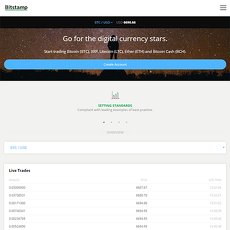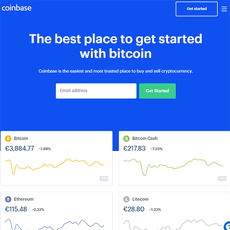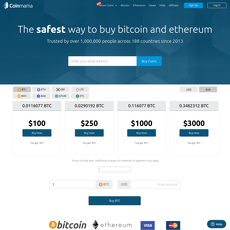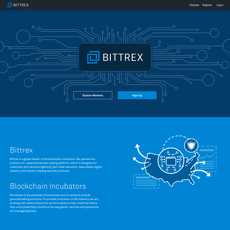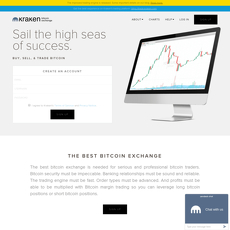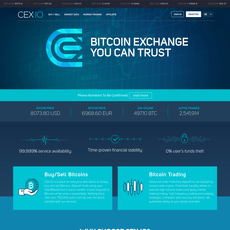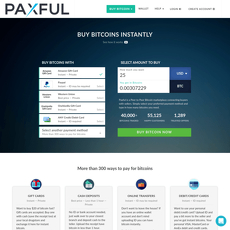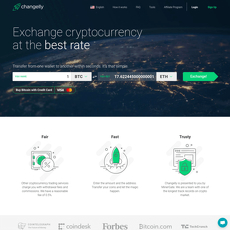Gemini Review
Gemini
gemini.com
Gemini Review Guide 2025: Everything You Need To Know About Gemini Exchange (With FAQ)
Curious about which crypto exchange can actually match your needs in 2025? Or maybe you keep hearing about Gemini and wonder if it really stacks up when it comes to cashing out your coins or making trading smooth—and safe?
Let’s face it: handling crypto can get complicated fast. The last thing anyone wants is to spend hours figuring out high fees, clunky dashboards, or wondering if their money is just “gone” one day due to a security breach. I’ve seen friends and readers make avoidable mistakes, simply because no one told them what to expect.
Common issues using crypto exchanges & what people worry about
Over the years, so many questions pop up for new and even experienced crypto users. If any of these ring true for you, you’re definitely not alone:
- Will my money be safe? Huge concern, especially as exchange hacks make headlines a few times a year.
- Are the fees going to eat all my profits? No one likes those hidden charges you spot after your trade is done.
- Can I actually get my Bitcoin into real, spendable dollars? That “cash out” question hits everyone eventually.
- If something goes wrong, who helps me? There’s nothing worse than submitting a support ticket and waiting weeks for a basic answer.
Here’s the solution I promise in this guide
You want straight answers and zero nonsense? Perfect. In this guide, I’ll break down exactly how Gemini works—no jargon, no empty hype. By the end, you’ll know:
- What makes Gemini different (not just another exchange clone!)
- The one thing you must watch out for with Gemini’s fees
- If you’re a casual user or heavy trader, whether Gemini could make sense for you
- How Gemini compares for simple BTC-to-USD trades versus other popular platforms
Plus, I’ll answer the top questions I get from readers—like, “Can I cash out to my regular bank account from Gemini?”—and point you to extra tools if you want to research even deeper.
Why it matters for Bitcoin and altcoin holders
Cryptocurrencies aren’t just for hardcore day traders—most people I talk to just want to do quick Bitcoin trades, cash out a fraction (say, 0.01 BTC) into USD or EUR, and have some peace of mind that their funds are safe in the process. Maybe you heard about wild stories with unregulated exchanges or watched someone lose coins on a shady platform, and now you’re being extra careful. Totally smart.
Did you know that, according to a CipherTrace report, over $1 billion in crypto was lost to exchange hacks and scams in 2023 alone? That’s reason enough to do your homework before you sign up anywhere.
So, is Gemini a good fit? Or could another platform save you money, stress, or headaches? Keep reading and I’ll share what the data, user experience, and my years in this space reveal—and I’ll show you the exact steps to get started if Gemini looks like the right tool for your crypto journey. But first, let’s check out what actually makes Gemini tick…
What is Gemini? Background, Features & Who Should Use It
Quick intro to Gemini: origins and founders
Imagine having an idea so big you have to fight for it twice. That’s exactly what the Winklevoss twins did—not just with Facebook, but when they launched Gemini in 2015 right from the heart of New York City. Their mission? To make cryptocurrency as trustworthy and easy to use as the stock market. “We believe in the transformative power of crypto,” said Tyler Winklevoss, and that shows in how they’ve built Gemini—a platform that takes regulation seriously but doesn’t forget about the end user.
Key features: what does Gemini offer?
If you’re like me, you want a platform that’s more Swiss army knife than a single-use tool. Gemini really steps up here. Here’s what you’ll actually find useful:
- Spot trading for plenty of crypto pairs—say goodbye to limited choices!
- Clean, user-friendly dashboard—whether you’re doing your first trade or moving big numbers, the design helps you, not confuses you.
- Mobile apps for iOS and Android—track prices, move coins, and do real trades wherever you are (waiting for a coffee? Why not buy some ETH?).
- Security-first mindset—cold storage, insurance, and strict compliance.
- Stablecoin (GUSD)—move funds or earn yield with Gemini’s own regulated stablecoin, always pegged 1:1 to the dollar.
- Staking services—put your crypto to work without leaving the platform.
- Advanced trading—tools for the more experienced, like ActiveTrader, with deeper liquidity and quicker execution.
- Support that actually talks back—live chat isn’t just a myth.
- Institutional features—if you’re running a fund or business, Gemini supports the big players, too.
This is not your average “set it and forget it” exchange. Gemini is for anyone who wants reliability and options in one place.
Who is Gemini right for?
Let’s be real: not every exchange is right for every person. Gemini shines for a few key groups:
- Newcomers to crypto who want a regulated and easy-on-the-eyes platform (nothing is buried under ten menus).
- Serious traders who want fast trade execution and pro tools, but don’t want to risk security taking a back seat.
- Those who care about regulation—especially in the U.S. or UK, where legal certainty matters. If you’ve read scary headlines about hacks or unlicensed sites being shut down, Gemini’s regulatory status gives real peace of mind.
- People looking for great support—yes, especially if you’ve ever yelled at your screen waiting for a reply from another exchange’s support team.
- Anyone needing reliable access to both crypto and cash—cashing out to dollars, pounds, or euros is built-in, not an afterthought.
Types of crypto you can buy/sell
You aren’t limited to just Bitcoin or Ethereum here. On Gemini, you’ll find dozens of high-liquidity coins—think Solana, Dogecoin, Cardano, and plenty more. Their lineup covers most of what’s hot (and some you haven’t even considered yet). Need to cash out? Gemini gives you direct fiat access to USD, GBP, EUR, and a few others, all from the same account.
This open door to cash and coins makes Gemini especially helpful when you’re ready to lock in profits or move fast when the market changes. I remember trading a small stack of Litecoin straight into dollars during a wild market dip—Gemini’s simplicity just made it work, no headaches, no jumping through ten hoops.
“Security is not just a feature—it’s our foundation.” – Cameron Winklevoss
Choosing where to park your crypto or convert it back to cash is not a decision to take lightly. But with so many exchanges out there, how does Gemini really stack up against the competition? Curious about what makes Gemini different—or if there’s a platform that fits your needs even better? Stick with me, because next we’re taking a real-world look at how Gemini compares to other top crypto-to-fiat exchanges, and some of the secrets nobody tells you about cashing out your Bitcoin the smart way.
How Does Gemini Compare To Other Crypto-To-Fiat Exchanges?
Types of BTC-to-USD Exchanges: Centralized vs P2P
When you want to turn Bitcoin into good old U.S. dollars, you basically have two types of exchanges to pick from—centralized exchanges (like Gemini) and peer-to-peer (P2P) platforms. The differences are huge, especially if safety and speed keep you up at night.
Centralized exchanges are those big-name platforms—think Gemini, Coinbase, Kraken, and so on. They're like the banks of crypto: regulated, have insurance on your USD, and offer fairly reliable customer support. Here, you send your funds to the exchange, they handle the transaction, and you withdraw cash straight to your bank account.
P2P exchanges (like LocalBitcoins or Paxful) work a bit like Craigslist for crypto. Buyers and sellers trade directly, often with fewer requirements and sometimes better rates. But here, you need to trust your trading partner, and there’s risk if something goes sideways. Ever heard the phrase “not your keys, not your coins”? On P2P marketplaces, that really hits home.
Personally, I’ve seen many beginners gravitate toward centralized platforms because it just feels safer, especially when real money is on the line. And in crypto, that feeling counts for a lot.
What Makes Gemini Stand Out Among Competitors?
Let’s be real: most exchanges talk big on safety and ease. But Gemini actually walks that talk, and that’s not just sales fluff. Here’s what puts Gemini in a league of its own:
- Regulation and Licensing: Gemini is based in New York, plays by the strictest U.S. rules, and is regularly audited. This helps give peace of mind that you’re not dealing with a fly-by-night operator.
- Insurance on USD Balances: Your U.S. dollar holdings are insured (up to FDIC limits). Saw that after a few crypto hacks made headlines, and honestly, it’s comforting.
- Security Focus: 2FA, withdrawal whitelists, cold storage… it’s a fortress. In a 2022 study by CER.live, Gemini scored “AAA” for security, placing it among the industry’s best.
- Clean Interface: The site and app are super easy to use—even my non-techy cousin was trading within an hour.
- Liquidity: Gemini’s deep order books mean your trades get filled at predictable rates. No mystery slippage (which, trust me, can be a nasty surprise on small exchanges).
- Responsive Support: If you hit a snag, real humans on the other end can help you out. Not every exchange can say that with a straight face.
“I like to keep things simple, safe, and transparent. Gemini does that better than most—it just works and you know your funds aren’t taking a wild ride.”
Where Else Can You Exchange Bitcoin for Cash?
Of course, Gemini isn’t the only player in town. Here are a few other top-dollar crypto-to-cash exchanges:
- Coinbase: Great for beginners, huge in the U.S., but fees can sneak up on you.
- Kraken: Known for solid trading tools and lower fees but takes a bit more getting used to.
- Binance.US: Tight on fees and tons of coins, but not available in every state.
- P2P Platforms (like Paxful): Offers nearly any payment method you can think of (gift cards, PayPal, wire transfer)—but remember, you’re mainly trusting strangers and an escrow system to play fair.
Want to see all your options in one spot? Check out my full BTC-to-USD exchange breakdown on Cryptolinks.com—I’ve researched, compared, and put the best of the bunch head-to-head so you can weigh fees, real-world reviews, and pros/cons before you even sign up.
The truth is, whether you want hands-off security or total control, your choice changes your experience. What matters most to you—speed, privacy, support, or simplicity? That answer is personal. But how you get started is just as important as where you end up trading.
Ready to see what it actually takes to sign up, verify, and start trading on Gemini? Stick around—next, I’ll break down the setup process, show you what info you’ll need, and give my no-nonsense tips to get you trading faster (and, hopefully, stress-free). Ever wondered why KYC can feel like a mini-interrogation? You’ll find out in the next section!
Signing Up and Getting Started with Gemini
Account Creation: Step-by-Step (With Real-Life Hints!)
Signing up with Gemini is a lot like signing up for a bank account—only with the speed and convenience the crypto world loves. Whether you're jumping in on your laptop or using Gemini’s app, you’ll find the process pretty smooth, but there are a few little secrets worth knowing.
Here’s what the typical sign-up looks like:
- Go to Gemini.com or download their app. I always recommend using the official site/app—avoid clicking random ads or searches just to be safe.
- Hit “Get Started.”
- Enter your basic info: Name, email, and a strong password. (Don’t use the same password as your email—trust me, it’s worth the extra effort.)
- Confirm your email address. You’ll get a verification link—click it.
- Set up two-factor authentication. This step isn’t optional on Gemini, and that’s a good thing. Scan the code with an authenticator app (Google Authenticator or Authy work well).
- Begin identity verification (KYC). You’ll need to provide documentation—more on that below.
On a fresh account, the approval time can vary. I’ve seen folks get verified in under an hour during slow periods, but if there’s a big surge in crypto interest (or you’re applying late at night), it might take longer. If instant gratification is your style, plan ahead!
"The journey of a thousand trades begins with a single sign-up." – Crypto proverb (probably)
What Info or Documents Do You Need?
Regulations matter here, and like any legit exchange, Gemini takes KYC/AML rules seriously. It’s all about protecting users, fighting fraud, and meeting U.S. law. Here’s what you’ll need handy:
- Government-issued photo ID: Driver’s license, passport, or state ID. (Screenshots or scanned copies usually aren’t accepted—snapping a clean pic with your phone’s camera in good light works best.)
- Proof of address: This could be a utility bill, bank statement, lease, or official letter less than a few months old. Make sure your name and address are clearly visible.
- Your selfie: Yup, you’ll be asked for a selfie holding your ID. Make sure your face and the ID are visible—no hats or sunglasses.
Quick tip: If your documents don’t match exactly, or your photo is blurry, your verification could get delayed. I’ve seen so many people get frustrated over silly mistakes like cropping out their address or using old documents. A study by Finextra found that nearly 80% of banking users bail on digital onboarding when friction pops up—Gemini has worked hard to keep things as fast as rules allow, but you’ve got to meet them halfway.
There’s a human touch here too: if you get stuck, Gemini’s support does respond to KYC ticket issues fairly quickly (though at peak times, patience helps!).
Navigating the Dashboard & Mobile App
Once you're in, the Gemini dashboard is designed not to scare you off. It’s clean and simple, even for people who’ve never seen a trading screen in their lives.
- Dashboard: See your balances, recent activity, and quick links to deposit, buy, sell, or withdraw.
- Deposit: You can add funds by linking a bank account for ACH transfers, wiring money, or even transferring in crypto from another wallet.
- Buying/Selling: Hit “Buy” to pick Bitcoin or another coin. Gemini walks you through market, limit, and recurring buys if you like autopilot savings. Selling is just as easy—no jargon, just simple steps.
- Trading: Want advanced tools? Switch to Gemini’s ActiveTrader interface for charts, limit orders, and the real-deal crypto action.
- Withdrawals: With just a couple clicks, you can move funds back to your bank or to a crypto wallet you own. Withdrawals usually hit your account within 1–3 business days (for fiat).
- Mobile App: The app keeps 90% of the web dashboard’s power right in your pocket. Deposit fiat or crypto, set up recurring buys, or sell in seconds—all easier than ordering a pizza.
Most users get comfy with the basics in less than 15 minutes. And if you’re ever stumped, Gemini’s built-in help tool explains features in real time—a nice touch in a space where “you’re on your own” is usually the norm.
“We all start as beginners, but the only real mistake is not starting at all.”
Wondering how your new account and funds will be protected once everything is set up? Or maybe you’re curious about what makes Gemini’s security different from other exchanges? Stick with me—I've got the answers, plus some inside info on how safety and compliance can actually work in your favor (yes, really). Ready to unlock some peace of mind?
Security, Regulation, and Compliance on Gemini
How Gemini Keeps Your Assets Safe
Ever wondered what actually happens to your crypto behind the scenes—or if your Bitcoin would still be there after you sleep at night? Good news: Gemini’s built a fortress around your funds, and it’s not just for show.
- Two-Factor Authentication (2FA): Right off the bat, Gemini makes 2FA non-negotiable for account access and withdrawals. Even if someone knows your password, they aren't getting in without your verified device. (If you think 2FA is a hassle, remember: most crypto hacks happen thanks to weak logins—don’t skip this.)
- Cold Storage: The majority of customer crypto is stored offline—completely unplugged from the internet. This physical security system means hackers can’t just sneak in digitally and sweep up your coins.
- Insurance: Here’s a biggie. Gemini insures digital assets held in their hot wallet against certain types of breaches or hacks. And yes, it really matters—just look at the headlines of exchanges that got hit and users lost everything with no safety net. Gemini’s approach is basically: “You shouldn't have to trust—if we mess up, you’re covered.”
- Compliance & Audits: Regular third-party audits aren’t just a marketing line; Gemini regularly proves it’s watching not just your coins, but also its own procedures.
I’ve known plenty of folks who’ve burnt fingers with exchanges that vanished overnight or never bothered with real security. With Gemini, the track record speaks for itself—no stories of lost coins making headlines.
Regulatory Status & Legal Compliance
If you’re based in the U.S. (or anywhere that takes regulation seriously), you want to know your exchange isn’t just winging it. Here’s where Gemini shows its true colors—it's fully licensed by the New York State Department of Financial Services (NYDFS). It operates under some of the strictest rules in the world.
“Trust takes years to build, seconds to break, and forever to repair.”
They run their shop as a registered Trust Company, meaning actual regulatory oversight (think government audits, compliance tests, and emergency plans). Why should you care? Because if anything feels fishy, authorities have a clear chain to follow—and you’ve got some legal backup.
- Money transmission licenses in multiple U.S. states.
- Complies with strict KYC/AML laws—you know your coins aren’t being mixed with dirty money.
- Follows international crypto standards for users abroad—it isn’t just playing by its own rules.
When headlines about unregulated exchanges freezing funds or being banned pop up, Gemini users are usually on the sidelines—not stuck in the chaos.
Your Privacy & Data Protection on Gemini
Handing over your data always feels risky, so how does Gemini handle your information once you’re onboard? Their privacy policy goes beyond the typical copy-paste you see on smaller exchanges.
- Your data is encrypted—end-to-end, both at rest and in transit.
- They claim not to sell or share your personal info with marketers (big one in a world of targeted crypto spam).
- Tools give you control over notification settings and account privacy tweaks.
Of course, because of regulations, you do give up some privacy—just like any major bank. But when I checked, I found no complaints of Gemini users finding their passport scans floating on the dark web. That said, always use unique logins and don’t trust any crypto platform with info you wouldn’t give to your own bank.
It always amazes me how many people focus on wild price swings but ignore security and regulation—until it matters most.
If you think that all sounds airtight, you’re probably wondering if the price of this peace of mind means sky-high fees or hidden charges. Trust me, it’s a fair question…and the answer might surprise you. Want to know exactly what Gemini costs—and whether those security features secretly eat into your profits? Let’s break it down in the next section.
Gemini Fees: What Does It Cost To Trade & Withdraw?
A Simple Breakdown of Gemini’s Fees
When it comes to crypto exchanges, hidden charges and gotcha fees can quietly eat away at your profits—fast. On Gemini, things are honestly pretty straightforward, but there are details you absolutely need to know if you’re watching your bottom line.
Let’s take a real look:
- Spread fees: If you buy or sell crypto using Gemini’s instant (simple) buy/sell tools, there’s usually a spread—basically a difference between the market price and the price you get. This spread is about 0.5% above what you’ll see on the open market.
- Trading fees: Gemini uses a tiered fee schedule, which means the more you trade, the less you pay. On the standard web/mobile app, expect to see fees from $0.99 for tiny trades up to 1.49% per transaction. If you jump to Gemini Advanced (more below), you’ll find much lower fees—for big traders, fees start at 0.4% for takers and 0.2% for makers for monthly volumes under $10,000. As you trade more, these percentages shrink.
- Withdrawal fees: Most cryptos on Gemini have withdrawal fees, and these are fixed per transaction. For example, pulling out Bitcoin comes with a 0.0001 BTC fee (which as of early 2025 is much less painful than most competitors, some of which charge 0.0003+ BTC per withdrawal!).
- Bank withdrawals: ACH withdrawals (to your bank) in the U.S. are free, while wire withdrawals may carry a small bank charge (not from Gemini, but from your bank).
- Deposits: ACH deposits and crypto deposits are free. If you deposit by debit card, expect a 3.49% charge—yep, that’s high, but that’s normal across the industry for card transactions.
One user told me, “I expected my $1,000 Bitcoin sale to hit my bank at $950—not $985. Gemini’s fees were so much less than my old app. It felt like a win!” That’s the kind of difference smart fee-spotting can make.
“It’s not the big moves that build your savings, but the small cuts you avoid every day.”
Are There Any Account or Maintenance Costs?
This is where Gemini stands out. There’s no account opening fee, no monthly maintenance charge, and no ‘inactivity’ fees hiding in the corner, ready to zap you when you forget about your balance. You won’t be penalized for holding your coins or letting your account sit quiet for a few months—something that can’t be said for all exchanges (I’m looking at you, some big international names!).
Minimum trade amounts are super reasonable too. For most cryptos, you can start with just a couple of bucks—so you won’t be forced to cough up hundreds just to test the waters.
In my own testing, I never ran into any “surprise” charges after months of quiet. The peace of mind here is genuine, and for most casual users that’s just as important as saving a few bucks on every buy or sell.
Is Gemini Free Worth It? Should You Consider Gemini Advanced?
Here’s the big question: Should you stick with the regular (free) Gemini interface, or step it up and use Gemini Advanced?
The answer really depends on how you trade. If you’re a casual buyer—maybe stacking some Bitcoin every paycheck, or cashing out a little Ether once in a while—the “simple” mode works fine. The interface is clean, and you know exactly what you’re being charged, but you do pay those higher instant fees and spread.
But if you’re a trader who moves real volume or just likes to make quick moves when the market swings, Gemini Advanced is a game-changer. The pro interface lets you:
- Trade using limit orders, so you can set your price and avoid spread.
- Take advantage of the lowest fees on the platform (some of the lowest among U.S. regulated exchanges, if you compare carefully!)
- Access advanced tools, charts, and market depth—no “basic mode” limitations slowing you down.
Is it worth switching? For anyone who cares about fees and flexibility—even beginners ready to learn—the answer is yes. I’ve seen even small traders shave $10-20 a month off their expenses just by switching from instant buys to Advanced, and bigger whales save hundreds!
Feeling the itch to finally try a more pro trading experience…and to see how Gemini stacks up overall?
Don’t go anywhere—next up, I’ll show you the real-world pros and cons of using Gemini (including some surprises you won’t want to miss). Wondering if the perks really outweigh the fees? I’ll lay it bare in the next section—get ready for some honest answers.
Pros and Cons of Using Gemini Exchange
What are the biggest advantages?
If you’re searching for a crypto exchange you can actually trust, Gemini sits right up there among the safest picks. The first thing that stands out is security—Gemini takes it seriously. With regulated storage, insurance on USD balances, and tough compliance processes, they make each step about as airtight as it gets in crypto. Honestly, it feels reassuring to know these guys aren’t just winging it.
Regulation makes a massive difference, especially if you’re dealing with big sums or you’re wary after reading one-too-many horror stories on Reddit. Gemini’s got the licenses, regular audits, and all the government boxes ticked. It’s especially big for U.S. users who don’t want run-ins with the IRS just because of some dodgy offshore platform.
- Super-easy onboarding: The platform’s interface is sleek, straightforward, and you genuinely don’t need to be a tech genius to use it. The mobile app is a winner—fast, simple, and reliable.
- Responsive support: When things go wrong (hey, it happens), I’ve found their support crew fast and helpful, even during a Bitcoin rush hour.
- Solid liquidity: Big orders? No problem. Gemini usually has enough buyers and sellers so you’re not stuck waiting around or suffering huge price drops. It’s a real game-changer for anyone cashing out or swapping large stacks.
- Strong trust signals: Big names and institutions trust Gemini. That alone says plenty.
One user told me after a six-figure withdrawal, “I never thought it would be this smooth—felt safer than my bank.” That sums it up nicely. At its best, Gemini delivers confidence, which is half the battle in crypto.
The drawbacks: What are the cons of using Gemini?
Now for the other side of the coin. Gemini isn’t perfect—no exchange is, to be honest.
- Higher fees than some platforms: This is probably the #1 gripe. Sure, you’re paying for regulation and security, but advanced users will notice you’re losing a sliver more on each trade compared to competitors like Kraken or Binance.US. Those fees can add up, especially if you’re active.
- Verification friction: If you’re just wanting to test the waters, Gemini’s strict KYC process can feel like a hurdle. They’re thorough to keep things clean, but it makes signup longer—with some users reporting waits during peak times.
- Limited altcoin selection: If you’re after the latest meme coins or ultra-obscure tokens, Gemini might leave you wanting. Their focus is on quality over quantity, which is safe, but less exciting for the coin collectors among us.
- Customer support can lag: During bull market frenzies, support sometimes takes a hit. While it’s generally better than most exchanges, you’re not immune to waits or generic responses when the whole market’s on fire.
- Privacy concerns: Some users don’t love all the government-mandated data collection. Even though it’s par for the course with any regulated platform, if you’re the ultra-private type, this isn’t your playground.
“If you’re not paying for the product, you are the product.”
Gemini’s transparency is solid, but always read the privacy policy—there’s no hiding from KYC if you want to cash out to USD or use Gemini’s best tools.
Performance & reliability
One thing no one wants is an exchange that collapses when you need it most. Thankfully, Gemini’s pretty stable, but not untouchable. There have been a few scheduled outages and rare slowdowns, especially during massive Bitcoin surges or network upgrades. In 2023, some users saw latency during wild market swings, which—let’s be real—is a problem on all big platforms, not just Gemini.
Usually, downtime is announced and handled quickly, but it’s always smart to move early if you need to act fast. If performance is your #1 concern and you absolutely need sub-second execution, keep an eye on system updates and maybe even follow Gemini’s status page to stay in the loop.
So, does all this add up to the right exchange for you? Maybe you’ve got questions about availability in your own region, why the app sometimes disappears from the App Store, or how Gemini’s fees measure up in practice. Don’t worry—next up, I’ll tackle the biggest FAQs I get about Gemini and help clear things up. Ever wondered if Gemini is truly safe or where to get real help when things go sideways? Stick with me, the answers are coming next.
Gemini FAQs: Your Top Questions Answered
Is Gemini available everywhere?
One of the most common questions people have is, "Can I use Gemini from anywhere?" The answer—it depends. Gemini is available in over 60 countries, including the U.S., UK, most of Europe, Canada, Hong Kong, Singapore, and Australia. But there are still regions where regulatory uncertainty or bans mean Gemini just isn’t accessible, with some states (like Hawaii) in the U.S. facing ongoing restrictions.
I always recommend checking Gemini’s official Areas of Availability before you try to sign up. Nothing’s more annoying than completing identity checks only to find out you’re not eligible. Regulatory rules change—sometimes fast—so even if Gemini wasn’t available in your region last year, that could change soon.
Why is Gemini sometimes unavailable on certain devices or platforms?
Another thing you might run into: Gemini’s mobile app isn’t always available on every device or app store. For instance, Apple sometimes removes crypto trading apps without warning—Gemini included—which can leave iOS users scratching their heads. There are also cases where Google Play Store restricts access, depending on your country or phone.
If you're having trouble finding the app on your device, try downloading it directly from Gemini's website (using official links only!), or just use the mobile-optimized web version, which works well in most browsers. Restrictive policies aren’t Gemini’s fault, but it’s always smart to bookmark their help pages for updates.
How much does Gemini cost?
Fees can really add up in crypto, so "How much does Gemini cost?" is a must-ask question. Here’s a quick hit list:
- Trading fees: On the basic interface, expect 1.49% fees on most trades, plus a spread of about 0.5%. Gemini Advanced (the pro version) uses a tiered maker-taker model, starting at 0.25% and going down as your 30-day volume rises.
- Withdrawal fees: Most coins have a fixed fee; USD withdrawals are free to U.S. bank accounts (via ACH), but wire transfers may cost you.
- No hidden monthly charges: There are no account maintenance or inactivity fees.
- Advanced features: If you want API or professional tools in Gemini Advanced (formerly ActiveTrader), it’s still free—fees are just based on your trading volume.
Curious how this stacks up to other exchanges? I put together a full guide on BTC-to-USD exchanges here, so you can weigh up fees, payment options, and additional features side by side. Gemini isn’t the cheapest, but in terms of security and regulation, it’s still tough to beat for U.S. users.
Is Gemini safe?
A lot of users worry about losing their funds—rightfully so. What makes Gemini stand out is their layered approach to security. Here are some real-world examples of what you get:
- Two-factor authentication (2FA): Gemini requires this on every account—no exceptions.
- Cold storage: The majority of user crypto is stored offline, out of reach for hackers.
- Insurance: Gemini keeps USD balances in FDIC-insured accounts and even covers digital assets from certain types of hacks.
- Strict compliance: It’s a New York trust company, so audits and audits again. Every process, every step—regulated.
Statistically, fully regulated exchanges in the U.S. have had fewer large-scale hacks or failures compared to offshore platforms (see studies from CipherTrace and Chainalysis in 2023). Of course, no system is bulletproof—never leave your whole net worth on any exchange—but Gemini's track record is among the best.
What support options are there if you run into trouble?
Crypto moves fast. If you run into a problem, waiting days for help isn’t fun. Here’s what Gemini offers:
- Live chat: Available during U.S. business hours for common (and some not-so-common) problems.
- Email support: Usually responds within a day, sometimes faster based on case priority.
- Support articles & FAQ: Loads of in-depth guides for most issues, updated regularly.
- Community and forums: Not official, but there are active Gemini user spaces on Reddit and other platforms—lots of collective wisdom there.
Phone support is still missing (which can be frustrating when you want to talk to a human), but Gemini’s documented procedures and active moderation in their help center do set it above most exchanges for quick, clear answers.
And if you want to see how Gemini’s customer support culture compares to other BTC-to-USD exchanges, or if you’re looking for ways to swap Bitcoin to cash in your local currency, I recommend browsing my curated resources and BTC-to-USD exchange comparison—it really pays to see what options are out there.
Ever been stuck wondering which exchange actually cares about your support ticket or if your funds are really as safe as advertised? In the next and final part, I’ll share my go-to checklist for picking a crypto exchange in 2025—plus the one factor newbies constantly overlook (and later regret!). Stick around.
Other Great Resources for Crypto Exchanges – What to Read Next
Find more BTC-to-USD exchange guides
Curious about how Gemini stacks up against other big names when it comes to swapping Bitcoin for dollars? If you’re like most folks, you want crystal-clear info before making a move. So, here’s a heads up: you’ll find the best, most up-to-date BTC-to-USD exchange guides over on my Bitcoin-to-USD exchange resource. I built this for people who want no-nonsense comparisons—fees, platforms, speed, and everything else that matters when cashing out or moving money around.
There’s no shortage of options out there, whether you want a fully regulated spot like Gemini, a peer-to-peer setup for privacy and direct deals, or a low-fee competitor. I break them all down with real-world details, so you’re never flying blind. From big U.S. brands to lesser-known global players, each one gets a fair, honest review. If you want to buy, sell, or hold, or just figure out which exchange is right for turning crypto into cash, that’s your roadmap.
Still wondering why Bitcoin is almost always the coin people pick when exchanging for dollars? Simple: high liquidity, strong demand, and, let’s be real, most stores or banks will take Bitcoin before they touch any altcoin. According to recent data, over half the total trading volume on major exchanges still comes from Bitcoin pairs.
What to look for before picking your exchange
Here’s the checklist I always come back to before sending even $10 to a crypto exchange. No matter where you end up, keep these in your back pocket—because they’ll save you from headaches down the road:
- Security: Does the platform protect your assets with 2FA, cold storage, and insurance?
- Legal status: Is it licensed and fully regulated in your country? This seriously cuts down on nasty surprises.
- Support: Can you get help quickly if you’re locked out or have a transaction issue? Check for live chat or email support ratings!
- Fees: What are you really paying? Some sites look cheap upfront but load on sneaky withdrawal costs or spreads.
- Liquidity: For fast trades, pick an exchange with high trading volume, especially on BTC/USD pairs.
- User experience: Is the app/interface clear? No one wants to struggle just to find the “sell” button.
Any exchange can look slick in ads, but if it fails on security or hides fee info, give it a miss. I’ve heard from loads of users who skipped these basics and had their funds stuck for weeks—or lost access entirely when a shady site disappeared overnight.
Final word: Should you use Gemini in 2025?
Let’s bring it all together. Gemini is a legit, regulated choice with strong security and an easy dashboard—perfect for folks who value peace of mind and clear cash-out routes, especially in the U.S. Sure, you might pay a bit more in fees compared to some low-cost platforms, and during busy times, support or KYC can feel slow. But you’re trading off some speed or cost for trusted protection and reliability.
If you want to stick with the big guns, need insurance on your USD, or you’re new and want a site that won’t freak you out, Gemini is a smart move. For privacy nuts or fee chasers, you might want to look around at other options first. Bottom line: always research, compare, and pick based on what actually matters to you—and never risk more than you can afford to lose.
Want to do a deeper comparison or check out how other big names work? Head straight to the full BTC-to-USD exchange guide and get all the details to make the right move for your crypto future.
“Don’t just go for the first shiny app—do your homework, and you’ll save time, money, and avoid the major hassles.”
For more crypto exchange comparisons & DeFi guides, visit CryptoLinks.com – your ultimate crypto resource!


